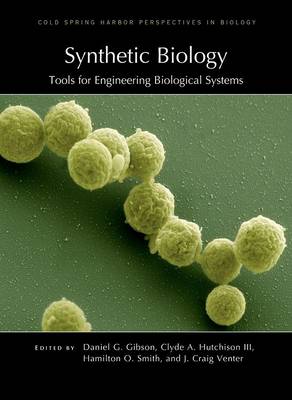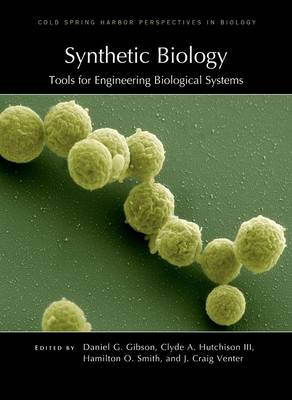
- Retrait gratuit dans votre magasin Club
- 7.000.000 titres dans notre catalogue
- Payer en toute sécurité
- Toujours un magasin près de chez vous
- Retrait gratuit dans votre magasin Club
- 7.000.000 titres dans notre catalogue
- Payer en toute sécurité
- Toujours un magasin près de chez vous
Synthetic Biology: Tools for Engineering Biological Systems
Daniel G Gibson, Clyde A Hutchison III, Hamilton O Smith, J Craig Venter
117,45 €
+ 234 points
Description
Synthetic biology involves the rational design and construction of biological components and systems--from genetic elements and metabolic pathways to entirely new organisms. Progress in this field has been rapid, and it promises to significantly expand our capabilities in biotechnology, medicine, and agriculture. Written and edited by experts in the field, this collection from Cold Spring Harbor Perspectives in Biology examines the tools and techniques employed by synthetic biologists, how these may be used to develop new drugs, diagnostic approaches, food sources, and clean energy, and what the field of synthetic biology has taught us about natural living systems. The contributors discuss advances in DNA synthesis and assembly, genome editing (e.g., CRISPR/Cas9), and artificial genetic systems. Progress in designing complex genetic switches and circuits, expanding the genetic code, modifying cellular organization, producing proteins using cell-free systems, and developing biodesign automation tools is also covered. The authors also explore ways to produce new organisms and products that have particular attributes--for example, microbial "molecular factories," synthetic organs and tissues, and plants with novel traits. This volume is an essential resource for molecular, cell, and systems biologists who seek to engineer living systems for human benefit.
Spécifications
Parties prenantes
- Auteur(s) :
- Editeur:
Contenu
- Nombre de pages :
- 280
- Langue:
- Anglais
- Collection :
Caractéristiques
- EAN:
- 9781621821182
- Date de parution :
- 30-06-17
- Format:
- Livre broché
- Format numérique:
- Trade paperback (VS)
- Dimensions :
- 183 mm x 257 mm
- Poids :
- 879 g







